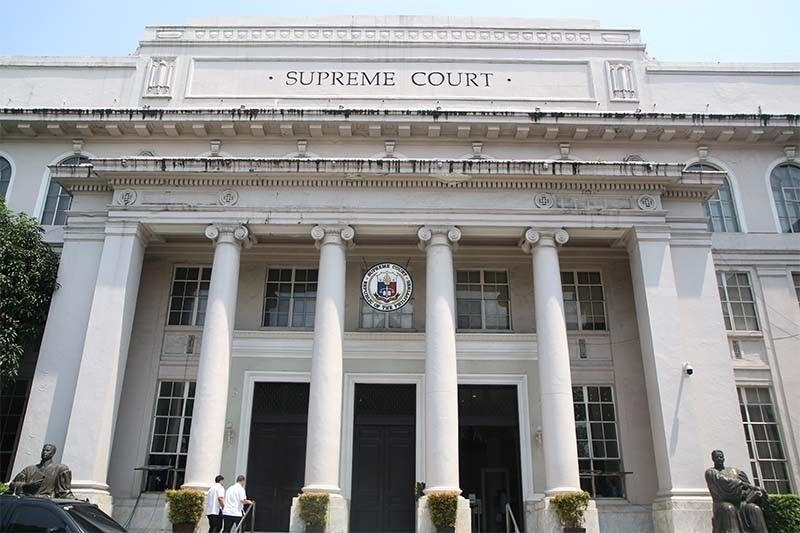SC designates special expropriation courts to speed up infra projects

MANILA, Philippines — The Supreme Court has designated 11 local courts to handle expropriation cases involving national government infrastructure projects.
The SC on Monday issued memorandum circular no. 08-2020 assigning 11 courts in Cavite, Caloocan and Manila as “Special Expropriation Courts for Public Roads” that will hear, try and decide on newly filed expropriation cases involving national government infrastructure cases.
This was in response to the letter of Public Works and Highways Secretary Mark Villar who asked the Offices of the Chief Justice, and of the Court of Administrator to “look into the possibility of considering expropriation proceedings for the acquisition of right-of-way for priority ‘Build, Build, Build’ projects” of the department.
According to the memorandum, Villar said this was a “urgent matter” and is connection to the efficient handling of expropriation cases and “for immediate issuance of writs of possession during community quarantine.”
The high court also noted that various Regional Development Councils from the Cordillera Administrative Region, Central Visayas and SOCCSKSARGEN regions, in the recent months, asked the SC to designate special expropriation cases.
The DPWH also informed Chief Justice Diosdado Peralta that the Cavite-Laguna Expressway (CALAX) Project and the NLEX SLEX Connector Road Project, two of its big-ticket projects, involve 308 pending expropriation cases before several courts in Imus, Trece Martires, Dasmariñas, Tagaytay, Caloocan and Manila. An estimated 902 other expropriation cases linked to the two projects are expected to be filed in the coming months, the DPWH also said.
“To address the impending volume of expropriation cases to be filed before the courts, eleven RTCs may be initially designated as ‘Special Expropriation Courts of Public Roads’ to hear, try and decide expropriation cases involving national government infrastructure projects in their respective territorial jurisdictions, which number may be increased upon the recommendation of the DPWH key cities with priority infrastructure projects,” the SC said.
These are the following courts:
- Imus Regional Trial Court Branch 20, presided by Presiding Judge Annabel Robles-Buenaluz
- Imus RTC Branch 22, presided by Executive Judge Mary Charlene Hernandez-Azura
- Trece Martires City RTC Branch 23, presided by Presiding Judge Purification Baring-Tuvera
- Trece Martires City RTC Branch 131, presided by Vice Executive Judge Jean Susan Desuado-Gill
- Dasmariñas City RTC Branch 90, presided by Presiding Judge Francisco Victor Collado Jr.
- Tagaytay City RTC Branch 133, presided by Presiding Judge Gian Enrico Navarro
- Tagaytay City RTC Branch 134, presided by Presiding Judge Michael Maranan
- Caloocan City RTC Branch 232, presided by Presiding Judge Rosalia Hipolito-Bunagan
- Manila RTC Branch 22, presided by Presiding Judge Tammy Ann Reyes-Mendillo
- Manila RTC Branch 28, presided by Presiding Judge Carolina Sison
- Manila RTC Branch 49, presided by Presiding Judge James Ty
Earlier in August, presidential adviser for flagship projects Vince Dizon said eight big-ticket projects under the “Build, Build, Build” program will take a back seat for now to prioritize infrastructure projects that are on “advanced stage” and “responsive” to the country’s post-pandemic needs.
Two airports, three water projects and three road and bridge infrastructures, cumulatively worth P370 billion, will be “shelved” and replaced with “shovel-ready” outlays or those nearing construction phase.
The decision to discontinue the projects is part of an ongoing review of the government’s centerpiece economic agenda, a program officials have refused to abandon amid the pandemic, and instead was calibrated into a stimulus push to revive the economy that just entered recession. – Kristine Joy Patag with reports from Ian Nicolas Cigaral
- Latest
- Trending




























